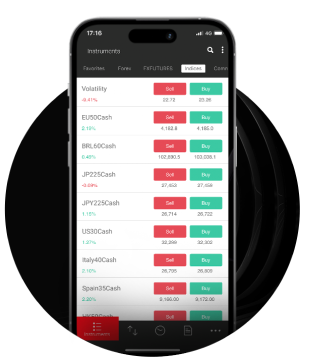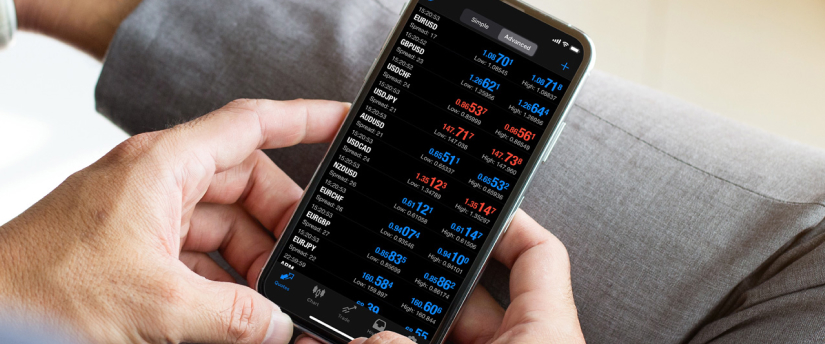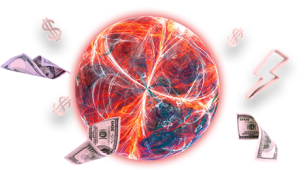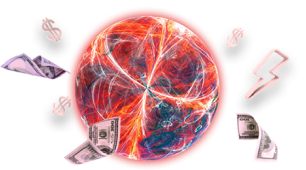El mercado de divisas o forex (also known as forex or FX) provides an opportunity for people looking to become financially independent. Forex is the largest financial market in the world, operating 24 hours a day, five days a week, and has a daily trading volume of over $7.5 trillion. Due to the low entry barriers of forex, it is an attractive option for those looking to begin their trading path, diversify their sources of income or move towards building wealth over the long-term.
Sin embargo, pasar de principiante a trader rentable requiere educación, disciplina y planificación estratégica. Esta guía recorrerá los pasos esenciales para comenzar su viaje en el trading de forex, ayudándole a reducir riesgos y aumentar los posibles rendimientos.
¿Qué es el trading de forex? When you trade forex, you buy one currency and sell another one at the same time. Currencies are traded in pairs, such as GBP/JPY o EUR/USD. The prices of currency pairs change constantly due to factors such as economic indicators, geopolitical events, and overall market sentiment.
These fluctuations provide traders with the opportunity to capitalise on short-term price movements.
Central banks, commercial banks, investment firms, hedge funds, multinational corporations, and retail traders (individual investors) are important market participants.
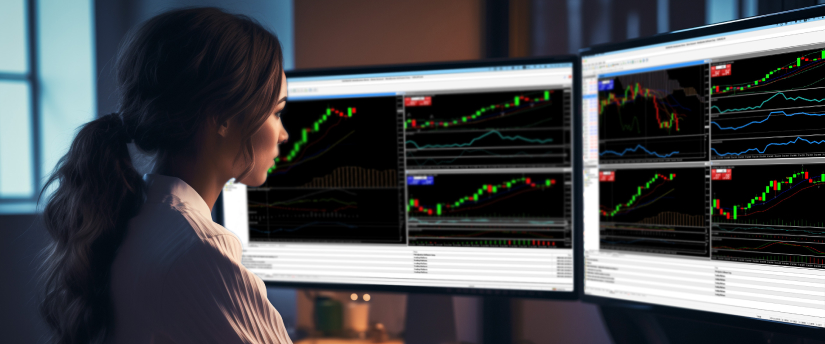
Cómo comenzar a operar forex
Edúcate
The first thing is to learn the basics of the forex market. Don’t even think about trading real money until you know what a pip is, how leverage works, and what order types there are.
To gain practical experience, make use of free courses, webinars, eBooks, y demo accounts. Your knowledge is your most valuable asset.
Elige un bróker confiable
Next up is the broker, who is your link to the forex market. Don’t just pick a random broker, but look for one who has low spreads and commission structures, a reliable trading platform with useful tools, learning resources, helpful customer support, negative balance protection and segregated client funds.
Prueba las plataformas y servicios de varios brókers, sin arriesgar capital real, abriendo cuentas demo con ellos.
Desarrolla y prueba una estrategia de trading
You need a well-defined strategy that matches your financial goals, risk tolerance, and time availability in order to trade effectively.
A good strategy should include entry and exit criteria, position size, how to manage risk, time frames for analysis and execution, and which currency pairs you’ll focus on.
Prueba tu estrategia primero en una cuenta demo y realiza un backtest con datos históricos. Esta práctica te ayudará a identificar qué funciona y qué necesita mejorar.
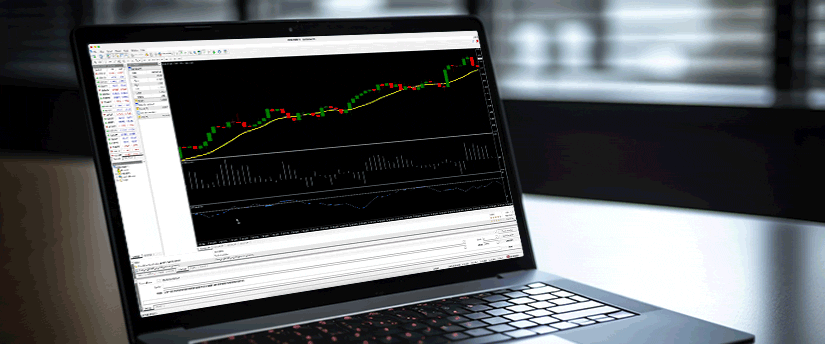
Conviértete en un experto en gestión de riesgos
La gestión de riesgos es uno de los aspectos más importantes del trading. Riesgas perder tu cuenta muy rápidamente si no gestionas bien tu riesgo.
Consejos importantes de gestión de riesgos:
- Nunca arriesgues más del 1-2% de tus fondos en una sola operación.
- Leverage stop-loss orders to limit possible losses.
- Utilize tools like a pip calculator so you actually know what’s at stake.
- Usa una calculadora de tamaño de posición para estandarizar el riesgo entre diferentes pares de divisas.
- Piensa en tu relación riesgo-recompensa, que debe ser al menos 1:2.
- Proteger tu capital debe ser tu máxima prioridad, especialmente al principio.
Crea un plan de trading y lleva un diario
Write down your goals in your trading plan. This will help you stay focused and disciplined. Your plan should include the markets and time frames, risk limits for each trade, trading strategies, and how you’ll track and review your performance.
Mantén un diario de trading detallado para registrar cada operación correcta. Incluye los puntos de entrada y salida, la justificación de tus decisiones y las lecciones aprendidas. Esta práctica te ayuda a aprender más rápido.
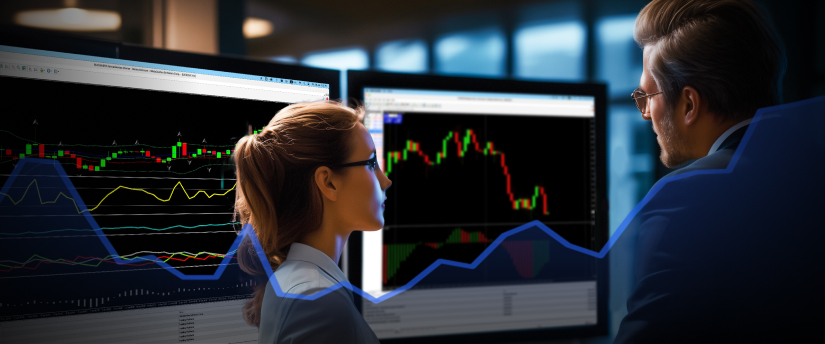
Herramientas esenciales para el trading de forex
Herramientas de análisis técnico
Diversos indicadores técnicos y patrones de gráficos pueden ayudarte a encontrar oportunidades de trading potenciales. Algunas herramientas útiles de análisis técnico incluyen medias móviles, índice de fuerza relativa (RSI), MACD (Moving Average Convergence Divergence), niveles de retroceso de Fibonacci y zonas de soporte y resistencia.
Estas herramientas son útiles, pero funcionan mejor cuando se combinan con una estrategia sólida y una buena gestión de riesgos.
Análisis fundamental
Mantente informado sobre noticias y eventos que afectan al mercado. El análisis fundamental te ayuda a entender por qué se mueven los precios. Los calendarios económicos, declaraciones y decisiones de política de los bancos centrales, noticias geopolíticas e informes sectoriales son fuentes importantes.
Calculadoras de gestión de riesgos
Usar las calculadoras adecuadas puede ayudarte a gestionar el riesgo con mayor precisión:
Calculadora de pips de forex
This tool calculates the value of a pip (the smallest price movement) for the specific position size and currency pair.
Understanding pip value helps you understand how much you might gain or lose before placing a trade.
Most platforms have built-in pip calculators, but independent versions are also available online for planning.
Calculadora de tamaño de posición
Perhaps the most important risk management tool, this calculator calculates the appropriate lot size based on account currency, currency pair, risk tolerance, and stop-loss level.
Even when volatility or pip values vary, using this calculator guarantees that you risk the same amount across several currency pairs.
Hacer crecer tu cuenta de trading de manera constante
Comienza con suficiente capital
Even though you can start forex trading with relatively small amounts, inadequate funds can cause you to make poor decisions.
If you’re trading micro-lots, a starting balance of $500-1,000 is reasonable, but $2,000 – $5,000 gives you greater flexibility to deal with market swings.
Establece expectativas realistas
El forex no es un esquema para hacerse rico rápidamente. Establecer metas poco realistas a menudo resulta en decepción. Apunta a:
Retornos mensuales consistentes del 1-2% al principio.
Mejorar tu estrategia y disciplina, en lugar de centrarte únicamente en las metas de ganancias.
Aceptar pérdidas y caídas de capital como parte normal del trading.
Paciencia – el desarrollo profesional puede llevar meses o incluso años
Errores comunes a evitar
Operar en exceso
Overtrading can result in poor trading performance and the loss of possible profits. In addition to increasing transaction costs, it often leads to impulsive decisions that could break your trading strategy.
Overtrading may be driven by boredom, FOMO (fear of missing out), anxiety or stress. To avoid it, maintaining emotional control and a disciplined mindset is essential.
Toma de decisiones emocional
El trading puede ser bastante estresante y puede desencadenar una serie de emociones como miedo, exceso de confianza y codicia. Estas emociones a menudo nublan el juicio y conducen a decisiones impulsivas e irracionales. Los traders deben mantener la disciplina y seguir su plan de trading, independientemente de las fluctuaciones del mercado o los altibajos emocionales.
Falta de educación
Trading requires continuous learning. Many beginners start trading without understanding how the markets work.
This lack of knowledge frequently results in impulsive decisions and financial losses. Staying informed helps traders keep up with market trends, new strategies, and technological advancements.
The markets are constantly shifting, and those who don’t adapt risk falling behind and missing out on valuable opportunities.
Conclusiones
Success in forex trading doesn’t happen overnight. The most prosperous traders treat it like a business, which calls for startup capital, ongoing education, regular performance evaluation, strategy improvement, and a long-term mindset.
By prioritising risk management, using helpful tools, staying disciplined, and committing to continuous improvement, you can build a solid foundation for making money over time.
Not every trader becomes profitable, but those who do typically share these traits. Remember that forex trading is a skill that takes time to develop.
With patience, persistence, and proper preparation, the market offers significant opportunities for those who take it seriously.
Comienza con poco, busca la consistencia y date tiempo para aprender. Tu camino hacia la independencia financiera no comienza con tu primera operación, sino con tu compromiso de convertirte en un trader informado y disciplinado.
DISCLAIMER: This information is not considered as investment advice or an investment recommendation, but is instead a marketing communication.
